ELVIN ONG
Dr Ong’s research focuses on democratization in East and Southeast Asia, specifically on the role of opposition parties. He has received funding from the Fulbright Program, the Singapore Social Science Research Council, the Ministry of Education, National University of Singapore’s Development Fund, Overseas Postdoctoral Fellowship, and the Overseas Graduate Scholarship, as well as the Southeast Asia Research Group’s (SEAREG) Pre-Dissertation Fellowship. Dr Ong was also named a 2019 Dan David Prize Scholar in Defending Democracy, and a 2018 Young Southeast Asia Fellow by SEAREG. In addition, he serves as co-convener of the NUS Political Science’s International Political Science Association – National University of Singapore Summer Methods School for Social Science Research. Outside of NUS, he is Chair-Elect of the Association for Asian Studies, Malaysia, Singapore, and Brunei Studies Group. |
|
Dr Ong was recently granted the FASS Award for Promising Researcher (APR). This award is presented to researchers who have produced research that shows potential impact and promise. We congratulated Dr Ong and spoke to him about his research work. |
|
1. What motivated you to pursue the discipline of political science after obtaining your undergraduate degrees in Business Management and Social Sciences and spending some time working in the public and private sector? 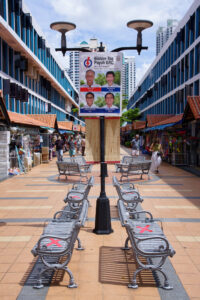 I was already very much interested in contentious topics in politics when I was in secondary school and junior college. I continued doing well for my political science classes while I was an undergraduate at Singapore Management University, and therefore decided to pursue a Masters in Oxford and then a PhD at Emory. It was simply taking slow progression one step at a time, feeling and learning my way as I went along. It also helped that I experimented with different internships at various points in time to learn what I did not want to do. For example, while I appreciated the opportunities to work on a chemistry laboratory project with a pharmaceutical company, learn how to market wines at an alcohol importing company, or how to write reports in a political risk consultancy firm, I never did see those as long-term career paths for myself. |
|
2. What’s the role of civil society in electoral autocracies? Are they a significant actor in affecting the opposition political parties’ electoral success? 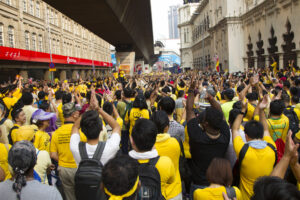 A strong civil society is an important ingredient for strong opposition parties and their electoral successes. Strong civil society organizations are “educators” of the public, sensitizing them to particular injustices and providing hopeful visions of the future. They are also “mobilizers” of the public, making sure that the public puts pressure on the government to enact reforms to address injustices. Opposition parties frequently piggyback on the strength of civil society, becoming their institutionalized political expression during election periods. For example, in Malaysia, the Pakatan Harapan opposition alliance would not have found significant successes in the 2013 and 2018 general elections if not for the educational and mobilizing power of Bersih, the social movement for electoral reform. In fact, some Bersih leaders ended up as election candidates for the Pakatan Harapan opposition alliance. |
|
3. Do opposition parties ever form alliances beyond their nation’s borders with ‘sister’ opposition parties? If not, why not? If so, has this type of alliance proven beneficial? 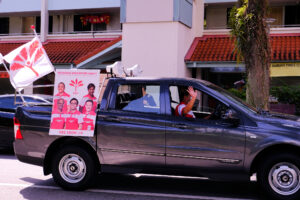 While some opposition parties may go on learning trips to other countries or express some rhetorical solidarity with other opposition parties, that is mostly all that they do. Alliances, if any, with ‘sister’ opposition parties are always hard to form and maintain because of two reasons. First, opposition parties are already burdened by their own domestic troubles and have little time for international cooperation. Second, there are doubts over what goals or objectives such international cooperation achieve. Any benefits are likely to be minimal for their own domestic causes. |
|
4. How common is it for the opposition to become the ruling party following an election in Asia? When this occurs, how likely is it for the new ruling party to make the same mistakes that led to the previous ruling party’s downfall? 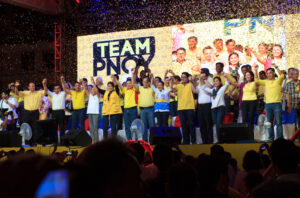 Electoral turnovers are not uncommon in Asia. What I am especially interested is in the first electoral turnovers in countries in East and Southeast Asia. Almost always, the newly victorious parties need to clean up the mess left by the previous ruling party. For instance, there can be massive problems in terms of corruption, anaemic economic growth, or particular social dysfunctions. The challenge is that these are frequently complex problems that take significant time to resolve. Yet it is precisely at these first electoral turnovers where public pressure is highest and at its most intense. A key preliminary finding from my research is that newly victorious parties oftentimes fail to manage public expectations. A collapse in public support soon after victory is a natural result. |
|
5. Your Social Science and Humanities Research Fellowship project, ‘After Victory: Governance Outcomes, Political Stability, and Institutional Reform in East and Southeast Asia’, intends to examine the necessary conditions that influence a newly victorious government to generate positive outcomes in governance, political stability and institutional reform following a revolutionary electoral victory by a liberal progressive opposition over a long dominant conservative incumbent leadership. The research will look at electoral turnover in Malaysia, Myanmar, Japan, Korea, the Philippines, and Taiwan. How did you decide on which countries and which instances of electorally-decided changes in government to include in your case study? As mentioned above, I am most interested in the first electoral turnovers in each country. I think these are the instances that generate the most interest and the most controversies, because such changes in government are unprecedented. The six countries mentioned – Malaysia, Myanmar, Philippines, Taiwan, South Korea, and Japan – are all similar in that they have all experienced clear instances of unprecedented first electoral turnovers. Despite their significant variation in institutional types, military influence, and democratization experiences, I believe there are many learning points from studying their historical experiences. |
|
6. You have conducted or will soon be conducting research on Korea, the Philippines, Malaysia, Singapore, Japan, Taiwan, Myanmar, and Cambodia. Do you have any interest in the future to expand your focus to additional countries in the region, such as Thailand, Indonesia, or other nations? 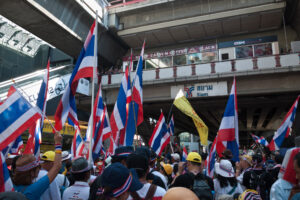 I think Thailand and Indonesia are a bit more complicated cases in that they were not clear instances of a liberal progressive opposition party or coalition soundly defeating a long dominant conservative incumbent. The newly victorious governments both contain some elements of the old regime. If I were to expand my empirical focus in the future, I would look to compare my findings from East and Southeast Asia with cases from Africa, Eastern Europe and Latin America. I believe that there are some learning points which may be similar and generalizable from region to region. |
|
7. Which social scientists have most influenced your research? I have benefited tremendously from various social scientists through reading widely, from game theorists to historians. But the one scholar that has most influenced my general thinking and writing on social analysis is James Scott, the much celebrated Yale anthropologist. I really like how he is able to provide rich details and textures of particularly minute social contexts, and yet is still be able to develop big, generalizable theoretical learning points about the way societies work. His book, Weapons of the Weak: Everyday Forms of Peasant Resistance, is such a delicate, fascinating and insightful tale of class struggle and resistance from a tiny village in Malaysia. I revisit the book from time to time, once every few months. |
|
8. Lastly, what has been your most memorable teaching experience at NUS? 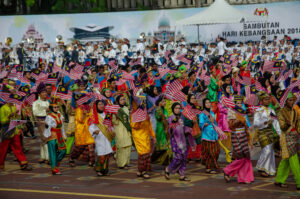 I have really enjoyed teaching PS4881B Malaysian Politics for the past three years at NUS. Not only do we study academic research on Malaysian politics, I also try to bring in real life elements to the classroom by inviting guest speakers to speak to the class, such as Malaysian politicians, academics, and civil society leaders. My assignments also have hints of real-life characteristics, such as writing imaginary memos for Singapore government ministers on Malaysian elections. It was most memorable that a graduate returned to tell me that since his joining the Singapore civil service, he actually needed to write a real-world memo on Malaysian politics for a Singapore government minister! Thank you very much for taking the time to answer these questions, Dr Ong, and congratulations again on being awarded Promising Researcher! |


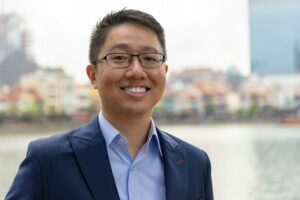 Dr Elvin Ong is an Assistant Professor at the NUS Department of Political Science and a Social Science and Humanities Research Fellow (SSHRF), funded by the Singapore Social Science Research Council. He is also currently a Fulbright Visiting Fellow at the Council on Southeast Asia Studies at Yale University (9/23-12/23). Dr Ong obtained his PhD in Political Science from Emory University, his MPhil in Politics (Comparative Government) from the University of Oxford (St. Antony’s College), and also completed a double degree in Business Management and Social Science from Singapore Management University. Before joining FASS, he was Postdoctoral Fellow in the Centre for Southeast Asian Research at the Institute of Asian Research, School of Public Policy and Global Affairs, University of British Columbia, from 2018 to 2020.
Dr Elvin Ong is an Assistant Professor at the NUS Department of Political Science and a Social Science and Humanities Research Fellow (SSHRF), funded by the Singapore Social Science Research Council. He is also currently a Fulbright Visiting Fellow at the Council on Southeast Asia Studies at Yale University (9/23-12/23). Dr Ong obtained his PhD in Political Science from Emory University, his MPhil in Politics (Comparative Government) from the University of Oxford (St. Antony’s College), and also completed a double degree in Business Management and Social Science from Singapore Management University. Before joining FASS, he was Postdoctoral Fellow in the Centre for Southeast Asian Research at the Institute of Asian Research, School of Public Policy and Global Affairs, University of British Columbia, from 2018 to 2020.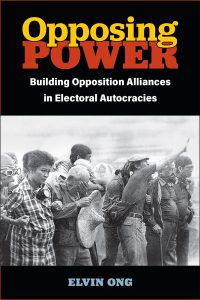 Dr Ong has published in academic journals such as Contemporary Southeast Asia, American Journal of Political Science, and Government and Opposition. His
Dr Ong has published in academic journals such as Contemporary Southeast Asia, American Journal of Political Science, and Government and Opposition. His